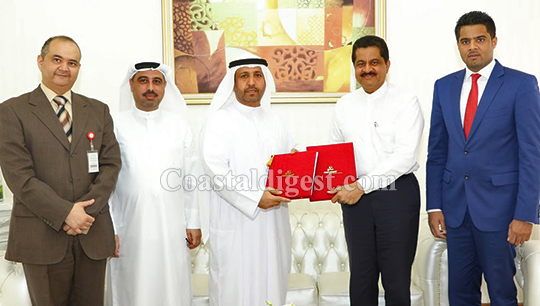Ajman, Mar 28: Thumbay Hospital, the leading network of academic hospitals owned and operated by the Dubai-based diversified international business conglomerate Thumbay Group, has signed an agreement with Sharjah Charity International, to provide healthcare services to the employees of Sharjah Charity International and their dependents. An MoU to this effect was signed on Tuesday, 28th March 2017 between Mr. Thumbay Moideen - Founder President of Thumbay Group and H.E. Abdullah Sultan Bin Khadem - Executive Director of Sharjah Charity International.
According to the MoU, the Thumbay Hospitals at Ajman and Fujairah will provide special discounts to the employees and their dependents of Sharjah Charity International, who do not have insurance coverage. Those with insurance coverage can avail the discounts on the services which are not covered by their insurance.
Speaking about the partnership, Thumbay Moideen, founder president of Thumbay Group, said: “The Thumbay network of academic hospitals, day care hospitals and clinics operate with the aim of helping the communities improve their quality of life. This partnership will be an important step to support the vision of a healthy, secure and safe UAE. We look forward to working together and improving the health and well-being of the community.”
Going forward, the Thumbay academic hospital network will have a total of 1000 beds in the UAE, 1500 beds in India and 750 beds elsewhere in the Gulf and Africa by 2022, taking the total number of hospitals to 15 worldwide. The expansion will pitchfork Thumbay Hospital as one of largest network of academic hospitals in the Gulf region.





Comments
Add new comment